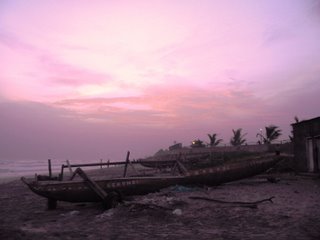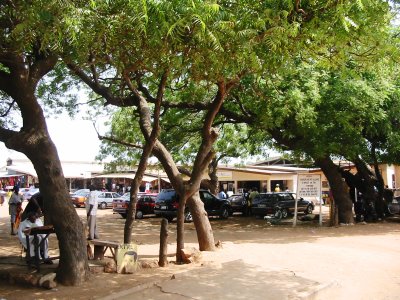
It was Mark Twain who said that old bromide: everybody always talks about the weather but nobody does anything about it. Reading the news lately has made me all the more determined that each of us must do something about the weather.
Among the stories that have really caught my attention are three recent ones: the snowless Alps, polar bears and a Canadian ice-shelf breaking away. Each of these stories connects to the overall issue of global climate change, and therein lies my war.
There are many things that any one person can do about global climate change. The first, of course, is to acknowledge that the planet is warming up much faster over the last several decades than at any other point in human history. Of course, over the millions of years the earth has existed, it has gone through periods of extreme heat and extreme cold. Many causes connect to the heating and cooling of the planet. But the emerging scientific consensus is that humans are contributing greatly to the current warming trends which in turn are causing the climate changes we see.
The second thing that one person can do is change her (or his) personal habits. There is a temptation to think that since the little things are so minimal, why bother. But, do bother. For example, we have switched over to almost all fluorescent bulbs in our house. We both drive cars that are reasonably fuel efficient. We don’t yet own a hybrid, which would be even more fuel efficient.

I am trying to raise my awareness of how I consume resources so that I am less consuming and more restoring of the earth’s resources. As my family knows, I am a rabid freecycler—doing everything I can to keep things out of landfills. I have recycled cans, bottles, newspapers, and plastics since before my son was born (and he turns 35 next year!).
So what is left? Changing public attitudes. One of my current bugaboos is that local weather forecasters insist on saying how lovely and wonderful the weather is when it is warm, and how awful it is when it is cool. First of all, I love cold weather. I long for, no—yearn for, snow. This winter has been an absolute bust here in central Pennsylvania. When the temperature these days has been in the mid-50s, weather forecasters say—oh, aren’t we fortunate to have such lovely weather. I shout at the TV—NO! I hate it.
So, I have finally decided I need to take these folks on. I have a theory: when the weather is abnormally warm in the winter, and people hear the weather forecaster say how great that is, they agree and are reinforced in their habits that contribute to global warming. Maybe that’s a stretch—but doesn’t it make a bit of sense. Why change the way you live, freely consuming earth’s resources, when the result is warm weather in the winter?
And just how does one take on weather forecasters? My perhaps feeble way is to fire off emails. Every time I hear a local forecaster say how lovely and warm it is, I send an email. The gist of what I say to them is—no, it is not lovely. It is downright freakish. And long term it is really scary.
I actually had one weather forecaster write back to me. Here’s what he said:
“Because we are meteorologists and not climatologists, climate change is beyond our field of expertise. We have to therefore become journalists when talking about it and must adopt journalistic ethics. We cannot take sides in passionate issues. We are supposed to be apolitical just like news reporters and we are not here to try to sway public opinion on anything. In the realm of climate change, that is an especially good policy because regardless of what you may have read, there is still quite the heated argument in "PhD Land" going on about humanity's artificial effect on global warming (natural global warming has been going on since the last ice age). What about the climatologists who don't publish their experiments which predict global cooling because of fears they'll lose their funding? What about the fact that fuel cells on the scale of every car in the world would be much, much worse for us because water vapor eats carbon dioxide's lunch when it comes to absorbing UV radiation? Americans are not getting all angles to this story. How could we go on-air all the time without differing opinion? Meantime, general consensus is that the current weather is nice. We can sort of reflect that mood, but we cannot flat out root for or against types of weather, either.”
Mostly, the responses I get back are “thank you for contacting us.” But the above comment really struck me. On the one hand, he was saying he can’t take sides, and then on the other hand he takes sides!
So, I have declared war on the weather forecasters. I will keep writing to them, urging them to recognize the role they play in influencing people’s perceptions of the weather.

And I have decided to begin to use a new response when people say to me: isn’t this weather wonderful? I am going to say—no, it’s freakish. And do you really want to live in a world without polar bears?



 The venue is primarily outdoor, with a fenced in area, a gate/door through which one must pass and pay an entrance fee. Once inside, there are relatively crude counters with rickety chairs to sit on. Patrons can order soft drinks or beer, and sit there in the humid night air. The entertainment is the draw. The overall space is a large open square, with the seats on two sides of the square, the refreshment bar on a third side, and the band on the fourth. The band plays
The venue is primarily outdoor, with a fenced in area, a gate/door through which one must pass and pay an entrance fee. Once inside, there are relatively crude counters with rickety chairs to sit on. Patrons can order soft drinks or beer, and sit there in the humid night air. The entertainment is the draw. The overall space is a large open square, with the seats on two sides of the square, the refreshment bar on a third side, and the band on the fourth. The band plays 





 We sat in the outer area which we learned the church had built several years before to accommodate all the extra worshippers they had. They called the overflow area the shed.
We sat in the outer area which we learned the church had built several years before to accommodate all the extra worshippers they had. They called the overflow area the shed. The hymns were unfamiliar--but, no matter. What I found most fascinating about the service was that in the course of the 2 1/2 hour long worship, they collected not one, not two but THREE offerings. First, they collected the tithes that went in wooden boxes. The givers had to come forward in special groups--the Session members first (then those boxes were taken away), then dignitaries and other important visitors (again, those boxes were removed) and finally all the other congregants. The second offering was a Thankoffering collection, no doubt for Thanksgiving Sunday. This was collected in deep bags that looked like knitting bags, that were passed in and out of the rows of worshippers. Finally, there was an announcement that since everyone has a special day, we should give in honor of that. While it took us a minute or two to figure out what the preacher meant, it soon became evident that you were to give in honor of your day of birth.
The hymns were unfamiliar--but, no matter. What I found most fascinating about the service was that in the course of the 2 1/2 hour long worship, they collected not one, not two but THREE offerings. First, they collected the tithes that went in wooden boxes. The givers had to come forward in special groups--the Session members first (then those boxes were taken away), then dignitaries and other important visitors (again, those boxes were removed) and finally all the other congregants. The second offering was a Thankoffering collection, no doubt for Thanksgiving Sunday. This was collected in deep bags that looked like knitting bags, that were passed in and out of the rows of worshippers. Finally, there was an announcement that since everyone has a special day, we should give in honor of that. While it took us a minute or two to figure out what the preacher meant, it soon became evident that you were to give in honor of your day of birth. 









